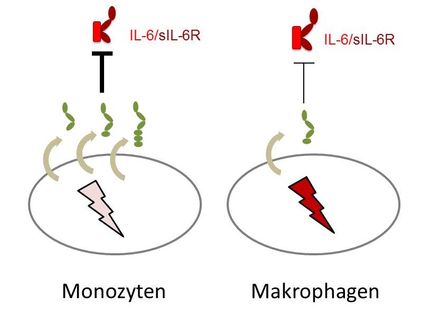Key US Patent Granted on Antibodies Against GM-CSF to Treat Inflammatory Disorders
IP Position around MorphoSys's MOR103 Program Significantly Strengthened
Advertisement
MorphoSys AG and the University of Melbourne announced that the U.S. Patent & Trademark Office (USPTO) has confirmed that it will issue U.S. Patent No. 7,455,836, covering key uses of antibodies against GM-CSF. The patent stems from a provisional patent application filed in the USPTO in 2000 by the University of Melbourne. In 2007, MorphoSys signed an agreement with the University of Melbourne, providing MorphoSys with an exclusive license to this patent family. The claims of the patent are directed to methods of ameliorating the effects of inflammation by administering to a patient an antibody directed against GM-CSF.
Human cytokine GM-CSF (Granulocyte macrophage-colony stimulating factor) is the target molecule of MorphoSys's proprietary MOR103 antibody program for the treatment of rheumatoid arthritis (RA). MOR103 is the first fully human antibody against GM-CSF in clinical trials. The drug could offer an innovative treatment option for RA based on a mechanism of action distinct from anti-TNF and other competing approaches. In 2004, the market for biopharmaceuticals to treat RA amounted to US$ six billion worldwide and is expected to further increase to US$ 14 billion in 2009.
"This new patent provides us with broad protection for our proprietary antibody program MOR103 in the United States, which is by far the largest market for RA drugs", commented Dr. Simon Moroney, Chief Executive Officer of MorphoSys AG. "Our patent portfolio around this promising antibody-based program now extends beyond the specific MOR103 lead antibody, itself, and we anticipate that MOR103 will find application in other inflammatory disorders as well."
Other news from the department research and development
Most read news
More news from our other portals
See the theme worlds for related content
Topic world Antibodies
Antibodies are specialized molecules of our immune system that can specifically recognize and neutralize pathogens or foreign substances. Antibody research in biotech and pharma has recognized this natural defense potential and is working intensively to make it therapeutically useful. From monoclonal antibodies used against cancer or autoimmune diseases to antibody-drug conjugates that specifically transport drugs to disease cells - the possibilities are enormous

Topic world Antibodies
Antibodies are specialized molecules of our immune system that can specifically recognize and neutralize pathogens or foreign substances. Antibody research in biotech and pharma has recognized this natural defense potential and is working intensively to make it therapeutically useful. From monoclonal antibodies used against cancer or autoimmune diseases to antibody-drug conjugates that specifically transport drugs to disease cells - the possibilities are enormous




















































